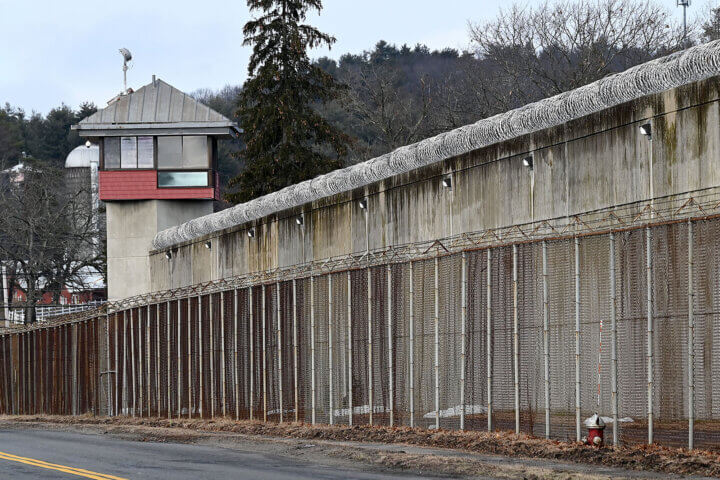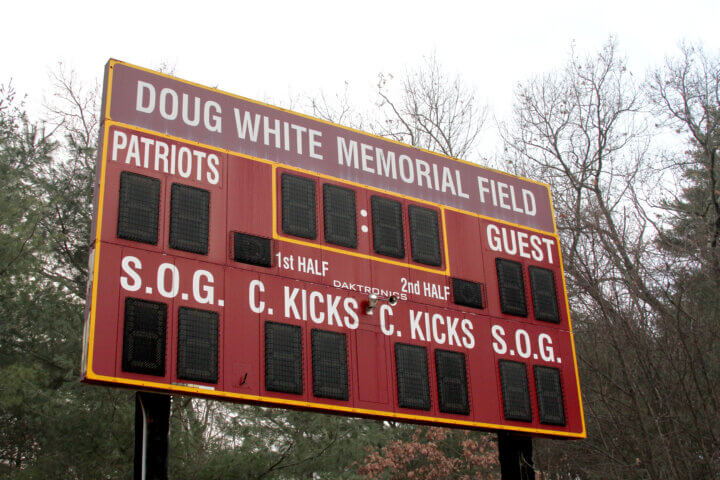By Erin Tiernan — Erin@concordbridge.org
Voters will decide five statewide ballot questions in November’s election — the most in more than two decades — and experts say that presents a challenge for educating the electorate.
“The threshold of expectation for voters is extremely high for these, and sometimes unreasonably high,” Evan Horowitz, executive director of the Center for State Policy Analysis at Tufts University, said at a recent League of Women Voters of Concord-Carlisle forum.
Questions range from allowing the state auditor to audit the notoriously opaque Massachusetts Legislature to abolishing the MCAS test required for high school graduation, allowing drivers for ride-hailing apps like Uber and Lyft to unionize, decriminalizing some psychedelics, and raising the minimum wage for tipped workers including servers and bartenders.
For all five questions on the November 5 ballot, a “no” is a vote for the status quo. A “yes” favors a statutory change.
Nancy Confrey, board member for the local League of Women Voters chapter, said the volume of information confronting voters trying to learn about five “complicated” questions is daunting.
It’s the highest number of questions confronting voters in a statewide election since 2000, when eight questions appeared on the ballot.
A review of state election data shows that voters leave more blanks when there are more questions on the ballot. In 2022 when there were four questions, 4% of voters left a blank on at least one question. In 2020, it was 6.3 percent.
Horowitz said data show underinformed voters are also “more inclined to vote no” on ballot questions — especially in years like this one when a “no” vote means no change in the law.
Here’s The Concord Bridge roundup of the most relevant information for this year’s statewide ballot questions.
Illustrations by Peter Farago

Question 1: State auditor’s authority to audit the Legislature
A “yes” vote would allow the state auditor to audit the Legislature.
A “no” vote would make no change to the state auditor’s authority.
Supporters say: It would “shine a bright light on how taxpayer dollars are spent to help increase transparency, accountability, and accessibility” in an institution continuously ranked “one of the least effective, least transparent legislatures in America,” said Neil Morrison of the Committee for Transparent Democracy. The Massachusetts Legislature is one of only four legislatures in the nation that exempt themselves from public records laws.
Opponents say: Allowing an executive branch official to audit the Legislature “would violate the separation of powers and legislative supremacy laid out in the state Constitution,” said Central Connecticut State University professor Jerold Duquette. Doing so would turn the auditor into a political actor and a potentially influential participant in the legislative process, compromising her duty to conduct credible, independent, objective, and non-partisan audits, he said.

Question 2: Elimination of MCAS as a high school graduation requirement
A “yes” vote would eliminate the requirement for students to pass the Massachusetts Comprehensive Assessment System (MCAS) exam to graduate high school but would still require students to complete coursework that meets state standards.
A “no” vote would mean high school students still have to pass the MCAS to graduate.
Supporters say: The MCAS is “a one-size-fits-all exam that fails to measure other student achievement including GPA, coursework, and teacher assessments when determining graduation eligibility,” said Shelley Scruggs, Massachusetts Teachers Association parent volunteer. Replacing the requirement with comprehensive measures would “allow teachers to stop teaching to a test and unburden students from a make-or-break standardized test.”
Opponents say: Removing the MCAS requirement would “abandon kids” and increase inequity by removing the only statewide graduation requirement, leaving Massachusetts with “less rigorous high school graduation requirements than Mississippi and Alabama,” Protect Our Kids’ Future said. The group said major education policy changes should be “studied, designed, and implemented by experts.”

Question 3: Unionization for Transportation Network Drivers
A “yes” vote would allow drivers on apps like Uber and Lyft to unionize and collectively bargain with companies over their wages, benefits, and working conditions.
A “no” vote would make no change in drivers’ ability to form unions.
Supporters say: Massachusetts drivers who work for ride-hailing companies like Uber and Lyft should have the option to join a union while maintaining driver flexibility and independence. That option is guaranteed for most workers, but not for ride-hailing app drivers, said Roxana Rivera of United for Justice, who supports giving rideshare drivers that opportunity.
Opponents say: This change would “raise the prices for all riders … funding union pockets, not drivers’ pockets.” The Massachusetts Fiscal Alliance said drivers would pay “significant” dues but have no control over union leadership or bargaining power. It added that Massachusetts drivers already receive base pay of $32.50 per hour, yearly increases, paid sick leave and family medical leave, health care stipends, and other protections and benefits.

Question 4: Limited Legalization and Regulation of Certain Natural Psychedelic Substances
A “yes” vote would allow adults over 21 to use some psychedelic substances under supervision, create a commission to regulate the drugs, and decriminalize possession and growing limited quantities.
A “no” vote would keep legal penalties in place for psychedelic substances.
Supporters say: Psychedelics would be allowed for treatments in approved therapeutic settings under trained and licensed facilitators but not offered for sale in retail stores. Winthrop Police Lt. Sarko Gergerian, a counselor with Massachusetts for Mental Health Options, said natural psychedelics are “safe, regulated medicines” and FDA-approved in some cases, and they can treat resistant mood disorders, including those in veterans and terminal patients.
Opponents say: Allowing psychedelics in for-profit centers and decriminalizing possession and growing plants in a 12-square-foot area would encourage distribution. “A black market is inevitable,” said Dr. Anahita Dua, associate professor of surgery at Harvard Medical School, who said the substances come with serious medical consequences, can exacerbate preexisting mental health disorders, and pose danger to children and pets.

Question 5: Minimum Wage for Tipped Workers
A “yes” vote would gradually raise the hourly minimum wage paid by employers to tipped workers to meet the standard state minimum wage by 2029 and allow workers to share in tip pools.
A “no” vote would make no increase in wages or changes to tip pooling for tipped workers.
Supporters say: Tipped workers who currently earn just $6.75 an hour “deserve the full minimum wage with tips on top” for financial stability. Estefania Galvis of One Fair Wage said many small restaurants already pay the full wage and that “tips should be a reward for good service, not a subsidy for low wages paid by large corporations.”
Opponents say: A “radical group” from California is pushing the increase. They say local tipped workers “have made it abundantly clear” they don’t want it, and that state law already guarantees workers the $15 hourly minimum wage — with most making more. Restaurant owner Doug Bacon said it would lead to lower “wages for servers, increase costs for restaurants, and skyrocket the cost of eating out.”






